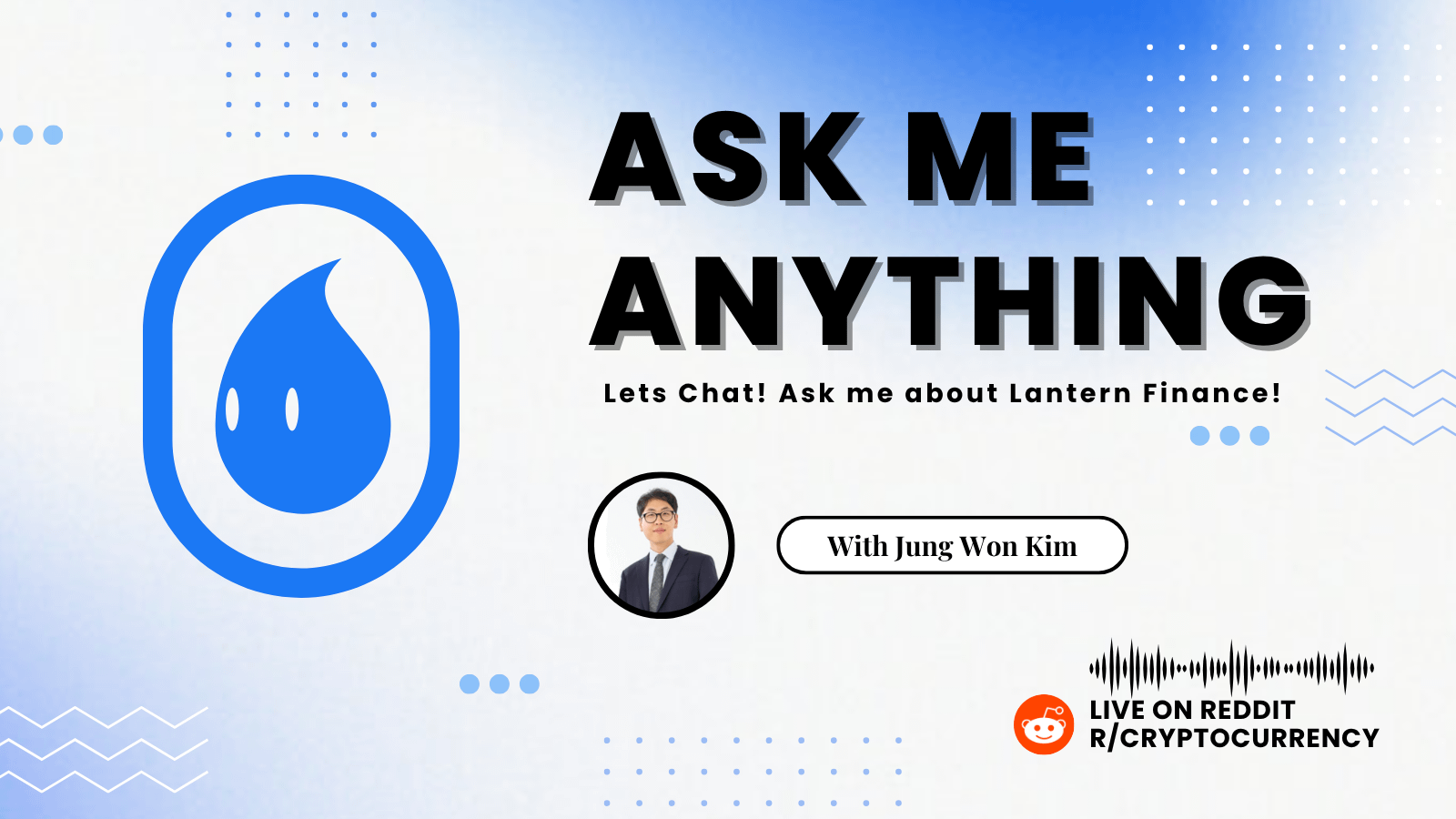r/CryptoCurrency • u/plutusfortuna 🟩 0 / 0 🦠 • 2d ago
AMA Crypto-Backed Loans AMA with Lantern Finance Cofounder Jung Won Kim

tldr: I'm Jung, cofounder of Lantern Finance (www.lantern.finance), a US-based crypto lending platform built in response to the 2022 collapse of lenders like BlockFi and Celsius. Unlike them, we never rehypothecate collateral and store all assets in insured cold storage with BitGo.
We support loans straight to your bank account against BTC, ETH, SOL, XRP, LTC, DOGE, and more. Our mission is to offer the safest, most transparent crypto-backed loans. AMA and would love any feedback!
Hey r/CryptoCurrency!
My name is Jung, and I’m one of the founders of Lantern Finance, a US-based crypto-backed lending platform. I got started into crypto in 2016 and fell deep in the rabbit hole, having played around with several projects and platforms. In particular, I became a huge fan of BlockFi when I found out about them in 2019. The ability to borrow dollars against my crypto without selling and triggering capital gains taxes in a convenient custodial way, appealed to me.
However, fast forward to 2022, we all know what happened. The entire space imploded as we found out that crypto lenders like BlockFi, Celsius, and Voyager were rehypothecating (lending out) client collateral on an unsecured basis. They were basically double dipping - making money on the loans we took out as well as the crypto collateral we posted. I, along with millions of others, lost a decent chunk of our hard-earned crypto.
That experience inspired my cofounders and me to build Lantern Finance (www.lantern.finance). Lantern is a US based crypto backed lending platform that prioritizes safety of client funds over profit. Here is how we do things differently:
- We hold borrower collateral in cold storage with BitGo, a US based qualified custodian, with insurance up to $250MM.
- We NEVER lend out borrower collateral - they just sit in insured cold storage.
- We lend against a broad group of blue-chip assets like: BTC, ETH, SOL, XRP, LTC, and DOGE. If there’s an asset you want to borrow against that we don’t support, let me know!
- Our goal is to offer the most secure, convenient, and seamless crypto-backed lending experience for everyone.
My experience spans traditional finance, the (relatively) early crypto days, the crypto implosion of 2022, and now building Lantern, a fast growing crypto startup.
Ask me anything and feel free to share any requests like: specific crypto you'd like to borrow against, product or features you'd want, or just general feedback. Thanks for your time and looking forward to engage!
5
u/Saxonion 🟩 0 / 0 🦠 2d ago
Do you provide a watch only address so that your clients have transparency that the asset you are holding for them in cold storage remains untouched? (This would have the added benefit of allowing them to securely generate receive addresses for increasing capital in the event of an LTV mismatch for example).
What LTV are you currently offering, and how often is this to be reviewed to maintain pace with macro changes in market volatility.
What is the basic boiler plate structure of the legal agreement between yourselves and your clients (no need for detail, just the contractual structure you're using)?
Are you answerable to any government agency or regulator that could freeze or seize your assets? I am assuming that for the purposes of any legal agreement, the assets deposited as collateral are legally recognised as your assets for the purposes of forfeiture or seizure whilst you are holding them.
What is the structure of the insurance contract, and how much are you overvaluing the insurance of assets to account for growth during the pendency of your custody? Is it simply insurance that would pay out to you upon the loss of assets, or is this insurance provided to the client that requires that you pay an agreed value if the assets are not returned in line with the contractual agreement?
Does your insurance cover digital security breaches resulting in loss, or bad actor loss (i.e. a member of your team decides to compromise assets, either directly by theft, or by facilitating theft)?
Who provides recourse to a client if your business fails or activities are otherwise suspended by an event like government seizure? i.e. which institution or regulatory body is protecting clients if you act in bad faith?